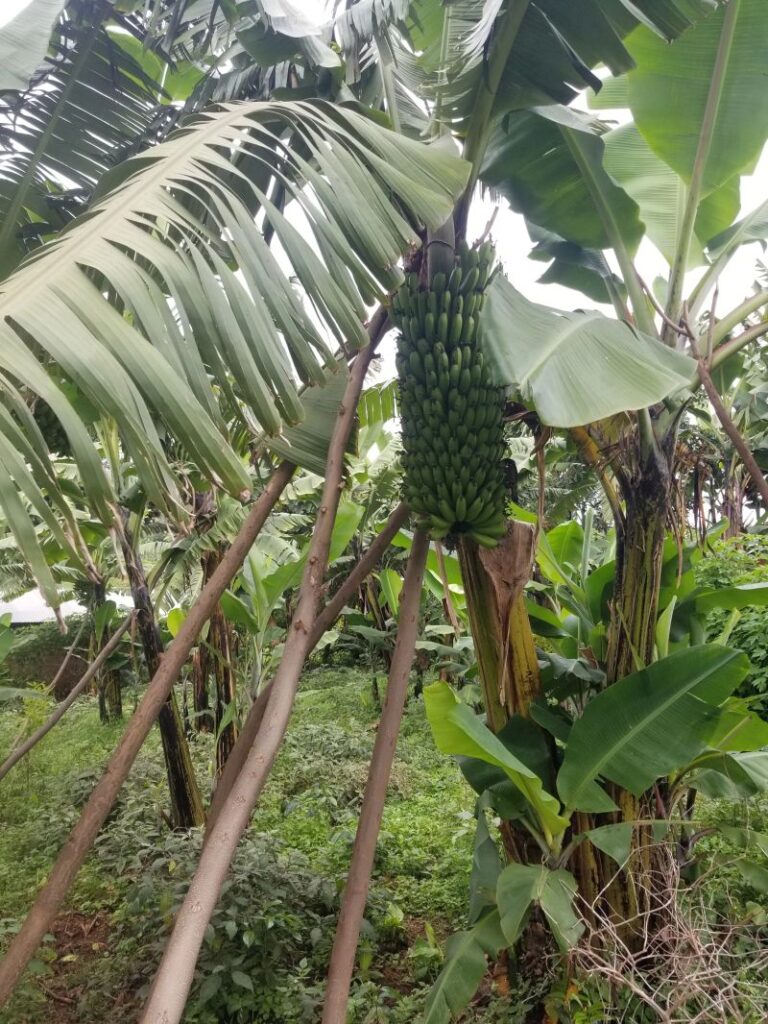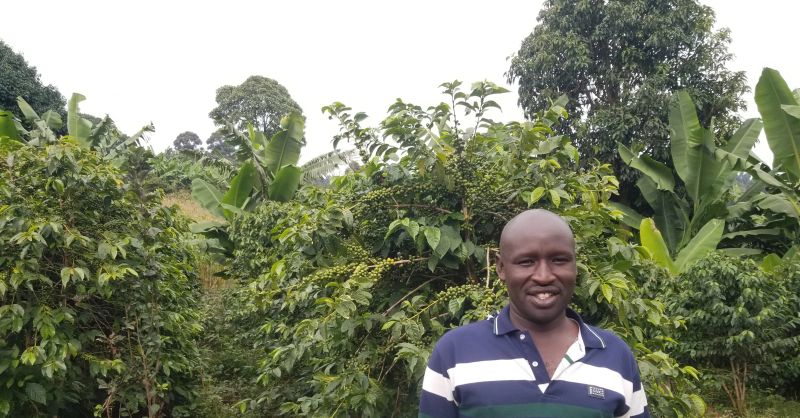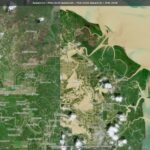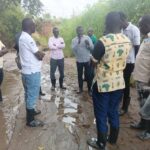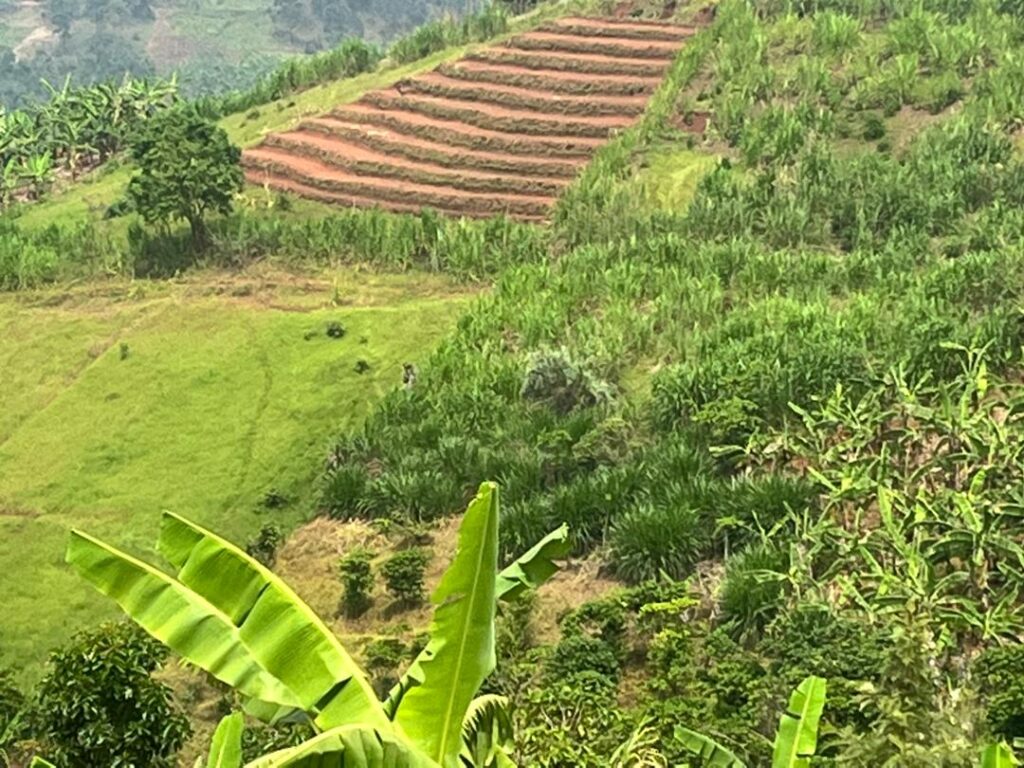A Coffee Farmer’s Story: Transforming Plant Health with Bio-Slurry
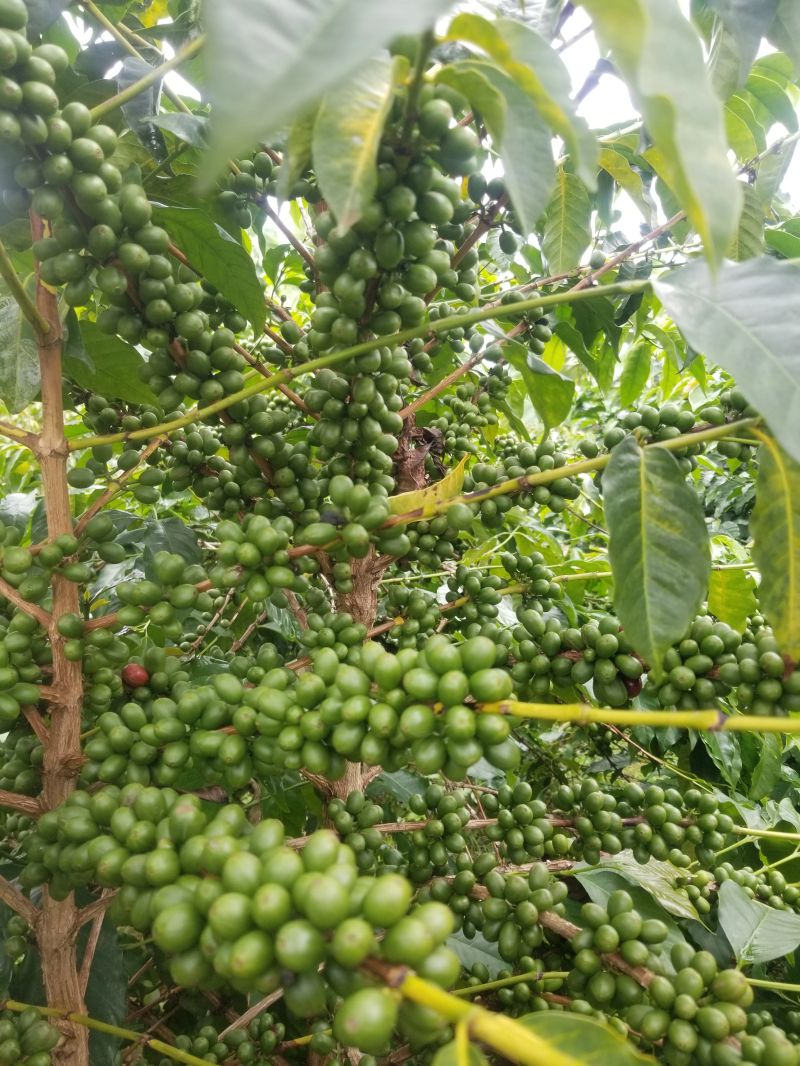
In the Mount Elgon region of Uganda, many coffee farmers are embracing sustainable practices to enhance their crop yields and reduce costs. One such farmer, Mr. Erick Takwar, has experienced a remarkable transformation in his coffee and banana farming through the use of bio-slurry, a residual material left after organic waste undergoes anaerobic digestion in biogas systems. This process breaks down organic matter, resulting in a nutrient-rich substance that contains macronutrients like nitrogen, phosphorus, and potassium, as well as micronutrients essential for plant growth.
The Journey to Bio-Slurry Adoption
Mr. Erick Takwar, a passionate smallholder farmer from Kween District, is among the beneficiaries of the Green Future Farming project (GFF) which was implemented by AidEnvironment in the Mt. Elgon Region. The project aimed to provide support to small holder farmers to improve livelihoods through combining investment in landscapes, mainstreaming regenerative agriculture and strengthening local value chains.
This support for farmers included biogas digesters which Erick had in his home. The biogas system not only provided clean cooking energy but also produced bio-slurry, to fertilize his crops, including coffee, bananas, and vegetables.
Before the intervention, Erick was worried about the declining soil fertility, stunted crop growth, and low yields. Like many other farmers in the region, he relied heavily on chemical fertilizers, which were both costly and environmentally unsustainable. The training and support provided through the GFF project therefore enabled him to adopt bio slurry as a sustainable soil enhancer.
Observing the Benefits
Over time, Erick says he noticed a significant improvement in his coffee and banana plants. The application of bio-slurry led to:
- Enhanced growth: coffee and banana plants became greener and more robust.
- Increased yield: a substantial rise in the number of coffee berries per plant.
- Cost savings: reduced need for chemical fertilizers and pesticides.
- The bio-slurry has not only improved the productivity of his coffee and banana plantations but also significantly contributed to improved yields, leading to increased household income.
Erick attributes these positive changes to the consistent use of bio-slurry, which he considers the “lifeline” of his farm. In his coffee and banana plantation, the application of bio-slurry improved and protected plants from pests and diseases, improved soil structure, and enhanced root development. Coffee yields doubled, and there was an increase in matooke size too. The improved yields in quality and quantity translated directly into increased earnings from local markets. Erick proudly states,
“Since I started using bio-slurry to improve my plant health, my banana yields have nearly doubled and there is enough food for my family, and my coffee plants are healthier than ever. I no longer need to buy expensive fertilizers. With the extra income, I have been able to pay school fees for my children and re – invest in my farm.”
Through this regenerative agriculture practice, Erick is a shining example of how locally available, environmentally friendly solutions like bio slurry can improve plant health, enhance soil fertility, increase crop productivity, and improve rural livelihoods by reducing poverty and ensuring food security. His success story underscores the importance of scaling up such regenerative agriculture practices to empower more farmers across the region.

